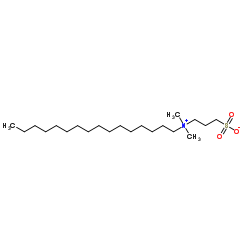Examination of micro-tip reversed-phase liquid chromatographic extraction of peptide pools for mass spectrometric analysis.
H Erdjument-Bromage, M Lui, L Lacomis, A Grewal, R S Annan, D E McNulty, S A Carr, P Tempst
文献索引:J. Chromatogr. A. 826 , 167-181, (1998)
全文:HTML全文
摘要
Mass spectrometry occupies a central position in most current protein identification schemes. So-called 'mass fingerprinting' techniques rely on composite mass patterns of proteolytic fragments, or dissociation products thereof, to query databases. Keys to successful analysis of ever smaller amounts are sensitivity and complete spectral information, both of which depend for a large part on proper sample preparation. Clean-up and concentration of peptide mixtures over eppendorf gel loading tips filled with chromatographic media (i.e. 'micro-tips') are believed to be quite useful in this regard. We have studied quantitative and qualitative aspects of polypeptide extraction using these small manual devices. Optimization of sample volume and additives, micro-tip bed volume, and eluent composition and volume, all contribute to effective recovery (approximately 65-70%, on average). Improper digest conditions can, in fact, lead to far bigger losses, suggesting the need for at least trace amounts of Zwittergent 3-16. Of particular interest is our finding that partial fractionation, obtained by two-step micro-tip elution, generally results in more and better signals during subsequent mass analysis. Thus, by using optimized micro-tips, in combination with adequate sample handling and instrumentation, direct mass spectrometric identification can be routinely and successfully done in any resource facility type setting.
相关化合物
| 结构式 | 名称/CAS号 | 分子式 | 全部文献 |
|---|---|---|---|
 |
3-磺丙基十六烷基二甲基铵
CAS:2281-11-0 |
C21H45NO3S |
|
Multi-target spectral moment QSAR versus ANN for antiparasit...
2010-03-15 [Bioorg. Med. Chem. 18 , 2225-31, (2010)] |
|
Highly sensitive analysis of flavonoids by zwitterionic micr...
2014-09-05 [J. Chromatogr. A. 1358 , 277-84, (2014)] |
|
Inhibition of mitochondrial carnitine-acylcarnitine transloc...
1980-10-01 [Can. J. Biochem. 58 , 822, (1980)] |
|
Further characterization of rat dihydroceramide desaturase: ...
2000-10-01 [Lipids 35 , 1117, (2000)] |
|
Solubilization and partial purification of retinyl ester syn...
1989-06-05 [J. Biol. Chem. 264 , 9231, (1989)] |